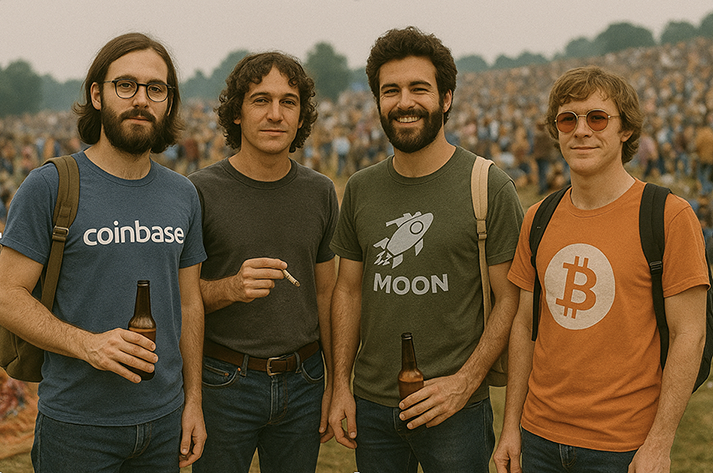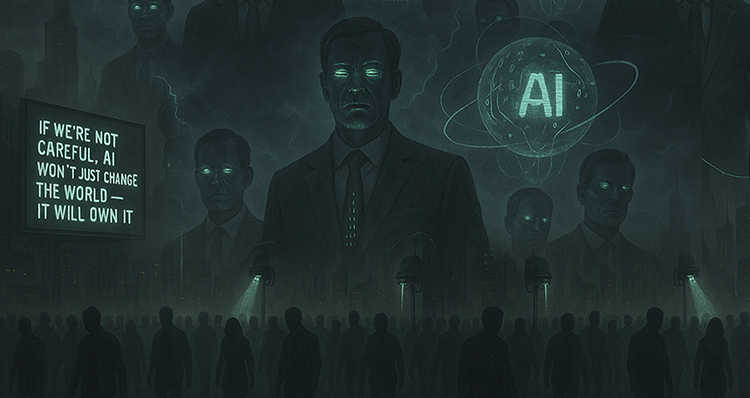Open-source is a beautiful concept born from the world of intellectual property. At its core, it embodies the idea that someone can create software and make it available for everyone to use, modify, and even commercialize. It’s a virtue rooted in our ability to share with others without expecting anything in return. In today’s digital age, open-source AI is becoming one of the most pivotal and controversial topics surrounding technological development, and its implications go far beyond code.
This philosophy evolved from the free software movement, which promoted the “four freedoms”: the right to use, study, modify, and distribute software. These principles didn’t just launch the open-source software movement — they laid the foundation of the Internet itself. The act of sharing, building together, and creating technology for the common good was more than a noble idea. It was the framework upon which our digital society was constructed.
The World Wide Web, for example, was the first major intellectual property creation that was royalty-free and accessible to all. Its creator, Tim Berners-Lee, gifted humanity a transformative tool — without charging a dime. Take a moment to say, Gracias Señor Tim. The 1994 International World Wide Web Conference was even dubbed “The Woodstock of the Web.” It was a gathering of minds and ideals, celebrating an era where knowledge and access were meant to be shared freely.
Imagine a Woodstock for developers. Epic.

But there was a problem. Open software sparked massive innovation but didn’t provide a clear path for sustainable funding. Eventually, corporations with closed systems began to take over. Social media platforms rose, and many applications once built on the open web became centralized and tightly controlled — not monetized directly with money, but with personal data. Users became the product, and their data became the currency.
The dream of a free and open internet dimmed as tech giants like Google, Meta, and others began to dominate. What started as a collaborative movement became fragmented and commercialized. And now, that same story is unfolding again — this time with Artificial Intelligence at the center.
What Does Open-Source Mean in the Age of AI?
As we enter the age of AI, the stakes are higher than ever. The meaning of open-source AI is still evolving — and not without controversy. As an intellectual property attorney, I find this lack of clarity troubling. The lines between public domain, proprietary code, and ethical use are increasingly blurred, and the potential consequences are staggering.
The stakes are not just academic or legal — they’re existential. AI isn’t just about software anymore. It’s about who controls the systems that will shape how we work, learn, communicate, and even think. We are talking about influence over collective decision-making, global economies, and cultural values. It’s not just about tools — it’s about power.
I believe AI training data and foundational models should be open-source, full stop. We absolutely need structures to ensure fair compensation for creators — AI data ownership must be addressed — but the code and model architecture need to be transparent. Why? Because if we build a future powered by black-box systems that no one understands and no one can audit, we’re handing over not just innovation but human autonomy to a handful of entities.
If we’re not careful, AI won’t just change the world — it will own it. And only a few will own the AI.
Take OpenAI, for instance. It began as a non-profit committed to open development. But today, much of its core functionality is locked down behind APIs, licensing deals, and vague promises of safety. That’s not to say safety isn’t important — it is. But as someone who has represented clients targeted by AI companies over alleged data misuse, I’ve seen firsthand how IP law can be weaponized to shut down transparency and crush competition.
These practices raise serious questions about AI ethics and regulation. Who decides what is “safe”? Who oversees the datasets used to train these models? If we can’t inspect or challenge the foundations of AI systems, we lose more than fairness — we lose accountability.

The Power Imbalance: Closed AI vs. Open Innovation
This growing imbalance reflects a broader cultural mindset — particularly in the United States — where the desire to “win the AI race” has taken precedence over collaboration and ethical development. The dominant narrative is nationalistic and zero-sum: we must win so others can’t. But this mindset is toxic. It breeds secrecy, stifles collaboration, and undermines public trust.
Yes, competition can drive innovation. But when it becomes predatory, it also breeds monopolies. When that monopoly controls AI, the outcome isn’t just economic inequality — it’s intellectual and creative disenfranchisement.
When the pendulum swings too far, it always swings back. This is the Hermetic law of rhythm — the universal balancing act. History shows that systems built purely on control and exclusion eventually collapse. So, if we keep building our tech landscape on fear and domination, it will eventually destabilize.
We need to restore balance. We need to imagine a world where decentralized AI development becomes the norm — where innovation is driven by many, not just a few.
Blockchain and the Future of Ethical AI
There is hope. Emerging technologies like blockchain offer a compelling alternative. With decentralized networks and smart contracts, developers can build open-source AI models and receive compensation for their contributions. This approach solves the funding challenge without sacrificing transparency or openness.
Imagine a world where contributors to a model are automatically rewarded every time their code or data is used, tracked transparently via blockchain. No NDAs. No lawsuits. Just clear attribution, fair pay, and community-driven innovation.
This is more than just technical progress. It’s a cultural shift. A move away from centralized platforms and toward ecosystems built on trust, traceability, and collaboration. It’s the reinvention of how we manage AI and intellectual property in a fair, decentralized way.
A great example is DeepSeek, an initiative developing a free and open-source alternative to ChatGPT. Their founder said it best: “Open-source is cultural, not commercial. Giving back is an honor, and it attracts talent.” That mindset fosters real innovation. Not because it seeks to dominate, but because it seeks to invite others in.
Compare that to the culture we see in Big Tech AI — where lawsuits are used to silence, where access is restricted, and where control is prioritized over community.
Instead of creating a movement, they’re manufacturing resentment. Instead of rewarding participation, they punish it.
We All Win When We All Contribute
Technology drives human progress — but only when used with integrity. As someone who has benefited from America’s competitive spirit, I understand the drive to win. But when AI becomes a tool of exclusion rather than inclusion, we all lose something profound.
We lose the joy of giving. The joy of sharing ideas, solving problems together, and co-creating a better world. The joy of building something and watching others take it further than you ever imagined.
Have you tried doing something lately without expecting anything in return? Just try. That’s the spirit of open-source. That’s the joy that fueled the early internet. And that’s what we’re in danger of losing.
We have a choice. Do we want a future where AI is dictated by a few corporations with closed systems and proprietary models? Or do we want a future where millions of developers, artists, researchers, and thinkers contribute to a shared, global intelligence?
Do we want AI and Big Tech control to define our future? Or will we reclaim that future through transparency, collaboration, and decentralization?
The future of AI ethics and regulation depends on the choices we make now. Not just in code, but in culture.
Let’s build a future where AI serves humanity, not the other way around.
Let’s protect the creators, the contributors, and the curious minds who are shaping the future in the open.
Let’s make open-source AI truly open — and truly ours.
If you’re working in AI, building with open-source tools, or navigating complex IP concerns, I’d love to connect. Whether you need legal support or want to collaborate on initiatives that make AI more transparent, ethical, and fair — reach out.
Thanks for reading.
— Fer